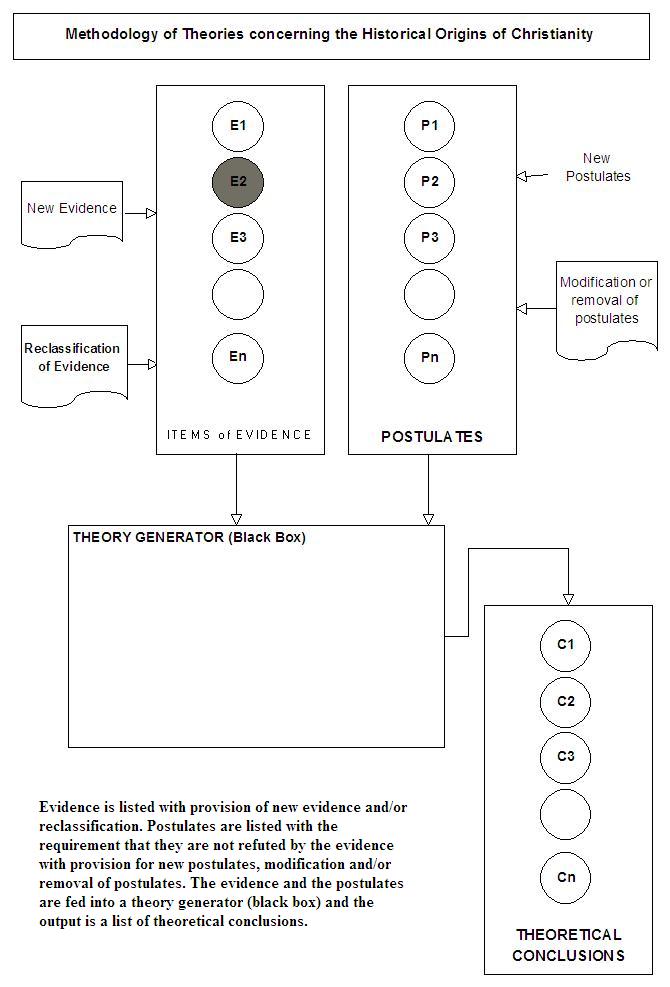
 |
Freethought & Rationalism ArchiveThe archives are read only. |
|
|||||||
|
|
Thread Tools | Search this Thread |
|
|
#51 | ||||
|
Moderator - General Religious Discussions
Join Date: Dec 2004
Location: New South Wales
Posts: 27,330
|
Quote:
http://dictionary.reference.com/browse/hypothesis The specifics of what McCullagh says about hypotheses fit with sense 1 of 'hypothesis' and not with sense 2. |
||||
|
|
|
|
#52 | ||||||
|
Contributor
Join Date: Jun 2000
Location: Los Angeles area
Posts: 40,549
|
Quote:
Quote:
Quote:
Quote:
I am having difficulty following your references to previous parts of this thread, so I will not continue in this vein for now. Quote:
Quote:
|
||||||
|
|
|
|
#53 | |||||||
|
Contributor
Join Date: Mar 2006
Location: Falls Creek, Oz.
Posts: 11,192
|
Quote:
Quote:
All dictionaries agree on the general use of the term. And it is precisely this general definition - applicable to the historical method - that MCCullagh writes about. Quote:
|
|||||||
|
|
|
|
#54 |
|
Veteran Member
Join Date: Sep 2005
Location: San Bernardino, Calif.
Posts: 5,435
|
The absolute number is irrelevant. What matters is that when we compare competing theories, the one with fewer postulates is, in general and ceteris paribus, to be preferred over those with more postulates.
|
|
|
|
|
#55 | |||
|
Moderator - General Religious Discussions
Join Date: Dec 2004
Location: New South Wales
Posts: 27,330
|
Quote:
Quote:
You began this thread (see above) by suggesting that people start from postulates, work forward from there, and stick to their postulates unless they are refuted. McCullagh suggests that different hypotheses should be compared with each other, and the best one chosen. Following your method, you adopt a postulate and insist on adhering to it unless it is refuted. If you followed McCullagh's method, you would compare your hypothesis with others and choose the best one, which might mean not sticking to your original postulate. Following your method, you can ignore alternative postulates to your own. Following McCullagh's method, not only can you not ignore alternative hypotheses, but you must actively seek them out and study them. |
|||
|
|
|
|
#56 | |||||||
|
Contributor
Join Date: Mar 2006
Location: Falls Creek, Oz.
Posts: 11,192
|
Quote:
He mentions "hypothesis" 8 times and "theories" zero times. Quote:
Quote:

|
|||||||
|
|
|
|
#57 | ||||
|
Contributor
Join Date: Jun 2000
Location: Los Angeles area
Posts: 40,549
|
Quote:
Quote:
Quote:
|
||||
|
|
|
|
#58 | |
|
Moderator - General Religious Discussions
Join Date: Dec 2004
Location: New South Wales
Posts: 27,330
|
Quote:
|
|
|
|
|
|
#59 | |||||
|
Contributor
Join Date: Mar 2006
Location: Falls Creek, Oz.
Posts: 11,192
|
Quote:
You repeatedly ask aa5874, and not K, about their first language .... was your primary university education in the humanities or the sciences? Would you mind addressing the OP in the diagram? |
|||||
|
|
|
|
#60 | ||||||
|
Moderator - General Religious Discussions
Join Date: Dec 2004
Location: New South Wales
Posts: 27,330
|
Quote:
|
||||||
|
|
| Thread Tools | Search this Thread |
|